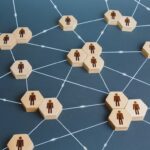A Halloween Story of Ghosts Spirits and Psychology
 Author:
Allan Schwartz, Ph.D.
Author:
Allan Schwartz, Ph.D.
Many young children harbor fears of things that go bump in the night. They express fears of the dark, insist they hear spooky noises and even claim to see strange things. I remember going through the same types of fears when I was a little boy.
Along with these fears of the dark many children and adults are fearful of ghosts, spirits and demons. Of course, these fears are dismissed as sheer imagination by those who are either scientific in their thinking, atheistic in the orientation or skeptical of believing in anything that cannot be proven through observation and quantification.
However, even for the greatest skeptics, watching movies and horror stories about the “other world” can be very scary.
The question I am posing is why is there a worldwide phenomena of believing the spirit world is evil and dangerous? After all, that is what is portrayed in novels and Hollywood movies. Most if not all religions, regardless of how large or small, carry messages about angry, evil and malevolent paranormal forces. I am sure that most people think of ghosts haunting their homes as very frightening if not downright dangerous.
Strictly from a psychological point of view, and leaving aside religious belief, thinking and values, the tendency to have such a dark view of spirits says a lot about the ways our minds work. Let me explain.
According to Sigmund Freud, the founder of psychoanalysis, everyone has a personality and defense mechanisms. These defense mechanisms protect the ego from overwhelming anxiety. One of those defense mechanisms is “Projection.”
Projection:
This is a psychological term for a defense mechanism where a person unconsciously denies their own thoughts, impulses and emotions, and then ascribes to the outside world. The reason why these thoughts, impulses and emotions are denied and then ascribed to the outside world is that they are so very harsh that the individual finds them unacceptable. They are experienced as unacceptable because no one wants to think of themselves as murderous or hateful. For example, if I have a reservoir of hateful and murderous feelings, I might have to project them out of myself and believe that others are hateful and murderous towards me. This is a kind of paranoid thinking.
From the time we are the smallest of children we come to think of certain aspects of ourselves as bad or evil. Parents typically communicate the notion that angry behaviors and outbursts are bad, naughty and unacceptable. Children take this in and come to think of their angry feelings and fantasies as “bad.”
What does a child do with these “bad parts of themselves?” They disown them by projecting them into the outside world. What better target of projection that the class scapegoat, minority child and dark and lonely bedroom?
Psychologically thinking, angry ghosts and demons are really those cast off parts of ourselves that are too awful to admit we have. The angry, spooky ghost is really the parts of our selves that we do not like. We are “afraid of our own ghost,” as the saying goes, because its the us we do not like.
If you doubt, I turn your attention to the language. How many times have you heard some say, in frustration, “that kid is a little demon!” Or, have you ever found yourself describing someone by the statement, “she’s a real witch.”
I remember one young female patient from many years ago who started psychotherapy because she was depressed and very paranoid. Only after she was able to admit her rageful feelings towards her abusive and cruel parents was she able to become less paranoid and depressed.
There was another patient, a woman and mother, who stated that she did not read fairy tales to her children because she didn’t want them to be scared by their violence. What she failed to recognize is the fact that fairy tales have stood the test of time because they provide an outlet for the hateful and violent feelings that children harbor inside of themselves.
So, enjoy Halloween. If you believe in ghosts try to think of them as the spirits of ordinary human beings who continue to walk among us. Who knows, perhaps they are trying to protect us.
If you do not believe in ghosts, have fun at Halloween anyway.
Your comments, opinions and questions are encouraged.
Allan N. Schwartz, PhD
We are a health technology company that guides people toward self-understanding and connection. The platform provides reliable resources, accessible services, and nurturing communities. Its purpose is to educate, support, and empower people in their pursuit of well-being.
Allan Schwartz, LCSW, Ph.D. is a medical writer with more than 30 years of clinical experience as a Licensed Clinical Social Worker. He writes on a wide range of mental health topics, including mood and anxiety disorders, eating disorders, trauma, abuse, stress, and relationship challenges.
Latest

Categories
- Opinion (137)

